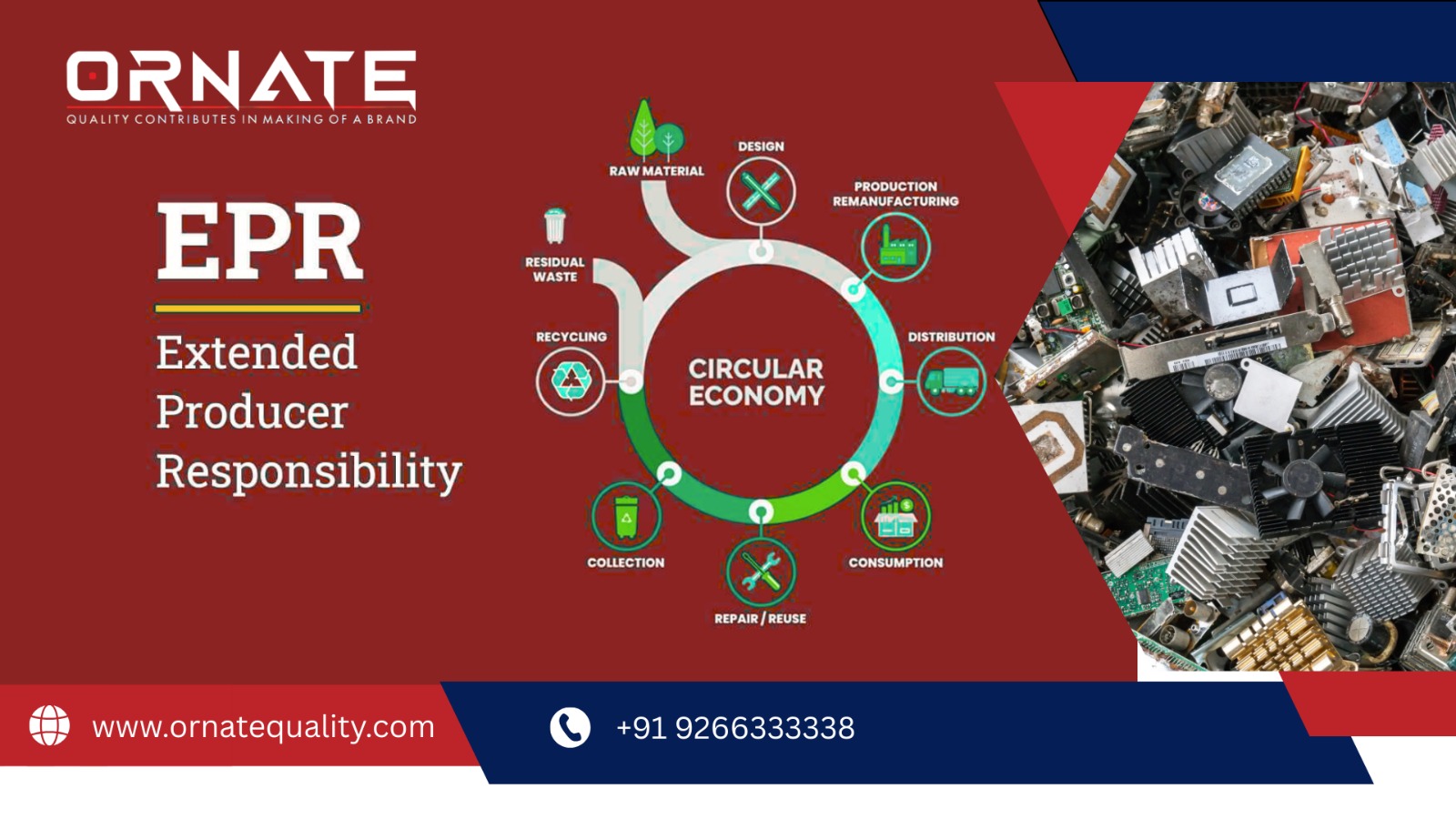In today’s world, waste is no longer just an environmental issue—it’s an economic and social challenge. Mountains of plastic, electronic scrap, packaging waste, and hazardous materials are pushing our planet to the edge. Enter EPR (Extended Producer Responsibility), a concept that is not just a compliance requirement but a revolutionary shift in how industries think about waste, sustainability, and responsibility.
EPR places accountability on producers, manufacturers, and importers to manage the entire lifecycle of their products—from creation to disposal. But its future goes far beyond waste collection. It’s about reshaping industries, protecting the planet, and transforming consumer behaviour.
Let’s dive deep into the future of EPR, why it’s important, predictions, and its impact on industries worldwide.
Why EPR Is Important for the Future?
-
Sustainability at the Core
EPR forces companies to think beyond profits and focus on sustainable product design, eco-friendly packaging, and waste reduction.
-
Circular Economy Model
Instead of a “make, use, dispose” model, EPR accelerates the circular economy—where products and materials are reused, recycled, and regenerated.
-
Consumer Awareness
Modern consumers prefer green brands. Companies complying with EPR show responsibility, which builds trust and loyalty.
-
Government Regulations
Countries like India, the EU, and the US are tightening EPR rules for plastics, electronics, packaging, and batteries. Compliance is no longer optional—it’s mandatory.
-
Climate Action
By cutting waste, reducing carbon footprints, and encouraging recycling, EPR directly supports climate change mitigation goals.
Predictions for the Future of EPR
-
Global Standardisation of EPR Policies
Within the next decade, expect to see unified EPR regulations across countries, particularly in packaging waste and electronics. Businesses will need global compliance strategies.
-
Digital Tracking & AI in Waste Management
Blockchain, IoT, and AI will be used to track products, monitor waste collection, and optimise recycling chains. EPR compliance will become more transparent.
-
Rise of Green Packaging
Single-use plastic bans and EPR packaging rules will push industries toward biodegradable, recyclable, and reusable packaging solutions.
-
Producer-Led Recycling Infrastructure
Instead of depending on third parties, producers will invest in recycling plants, waste collection systems, and reverse logistics networks.
-
Consumer Incentives & Rewards
Companies will offer cashbacks, loyalty points, or discounts to consumers who return used packaging, electronics, or batteries.
-
EPR in Emerging Sectors
Beyond plastics and electronics, expect EPR expansion in sectors like textiles, automotive, and renewable energy equipment.
The Revolutionary Impact of EPR
1. On Industries
-
Companies will redesign products with eco-friendly materials.
-
Costs may rise initially, but long-term savings from recycling and waste reduction will balance the scales.
-
Brands embracing EPR will gain a competitive advantage in global markets.
2. On Consumers
-
Better waste collection systems will improve everyday life.
-
Consumers will play an active role in recycling—from returning bottles to participating in digital waste-tracking apps.
-
Growing trust in brands that “walk the talk” on sustainability.
3. On the Environment
-
Reduced landfill waste and plastic pollution.
-
Lower greenhouse gas emissions from recycled production.
-
Preservation of natural resources through reuse and recovery.
4. On Governments & Economy
-
New job creation in waste collection, recycling, and green-tech innovation.
-
Governments save money on waste management while enforcing stricter laws.
-
Strengthened partnerships between public bodies, private companies, and NGOs.
How EPR Will Revolutionise the Future?
EPR is not just about compliance—it’s a mindset shift. By 2035, experts predict that:
-
Nearly all major industries will have built-in EPR systems.
-
Zero-waste policies will become standard practice.
-
Recycling will be seen as a profit centre, not a cost burden.
-
Consumer behaviour will permanently shift towards responsible purchasing and waste management.
Imagine a future where:
-
Electronics are fully recyclable, with no e-waste left behind.
-
Every piece of packaging is biodegradable or returned for reuse.
-
Waste is digitally monitored, ensuring 100% accountability from production to disposal.
That’s the EPR revolution—a future where sustainability is built into the DNA of business and daily life.
Final Thoughts
The future of Extended Producer Responsibility (EPR) is bright, bold, and transformative. It is no longer just about compliance—it’s about innovation, consumer trust, and environmental survival.
Businesses that embrace EPR today will not only comply with laws but also lead the sustainability revolution, earning consumer loyalty and global respect.
In short: EPR is not the end of responsibility—it’s the beginning of a new sustainable era.

